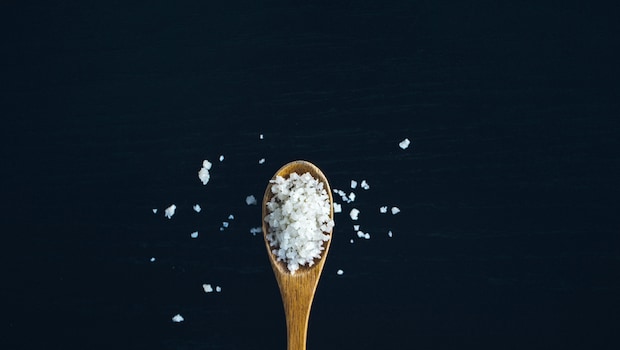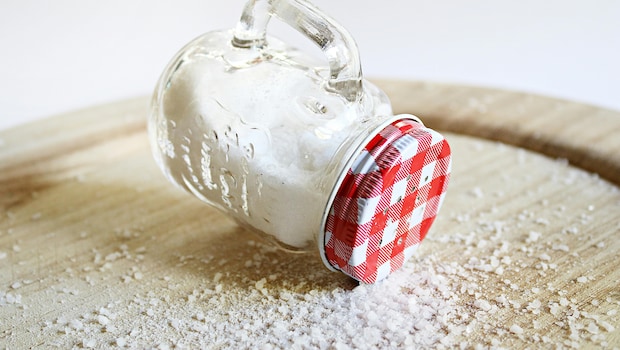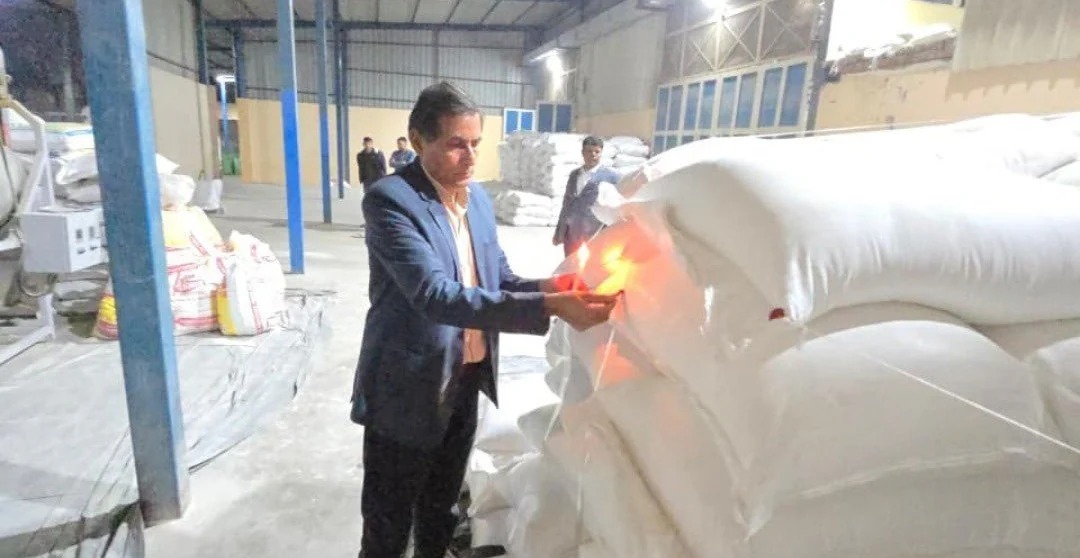When it comes to salt, we don't think twice about the way we store it at home. After all, it's salt, right? But honestly, the plain old steel container that you have been using for years might not be the best choice for storage. If your salt keeps clumping up or your masala dabba smells musty, your storage habits could be to blame. Salt may look harmless, but it reacts to its surroundings. And our kitchens are pretty much immune to steam, heat, and humidity, which can alter the taste of your spices and the condition of your steelware. Here's why you must keep salt away from steel containers.
Also Read: 7 Genius Tricks To Prevent Salt From Clumping and Becoming Damp
Why Do Salt And Steel Containers Not Go Together

Photo: Unsplash
The reason why salt shouldn't be stored in steel containers is its nature. For the unversed, salt is hygroscopic, meaning it absorbs moisture from the air. Steel, which is strong in nature, isn't immune to dampness and moisture. Over time, the salt stored in the steel container will be hard to use because:
1. It'll be clumpy and hard, meaning it'll be difficult to scoop.
2. Surface-level rust or discolouration in the container.
3. A dull taste, especially if stored near other spices.
How This Altered Salt From Steel Containers Can Affect Your Everyday Cooking
Now you might think that this moisture will affect only the salt stored in the steel container and nothing else. But it's not just about the clumpy salt. In fact, that unwanted moisture can get into spice blends too, especially if you store all your basic masalas in one steel container. Moisture will ruin the texture, alter the aroma of the spices, and even shorten their shelf life. Your chaat masala won't be zingy, and your garam masala won't be that powerful. This, in turn, will make your food taste bland and ruin the dish's final outcome.
Smart Tips To Store Salt

If you are struggling to store salt properly at home, here are some quick tips to help you save its taste and texture for your meals:
1. Choose Better Materials
Instead of using steel containers, switch to better materials like ceramic, glass, or food-grade plastic containers with tight lids. These help keep moisture out and also don't react with salt at all.
2. Add Moisture Absorbers
Drop a few uncooked rice grains or a small piece of dry bread inside the container. They soak up excess humidity and keep salt loose.
3. Keep Away From The Stove
Steam from boiling pots and pans can sneak into open salt containers. Always store salt in a cool, dry corner of the kitchen.
4. Always Use A Dry Spoon
Make sure never to use a damp spoon straight into the namak. Even a drop of water can change the texture of salt over time.
Also Read: Salt And Pepper Chicken Recipe: Make This Spicy Indo-Chinese Classic For A Delicious Affair
What To Do With Clumpy Salt

Photo: Pexels
If you are already struggling with hardened and lumpy salt at home, here's how you can fix it:
1. Dry roast the clumpy salt on a low flame for a minute or two, and then cool and store.
2. Put it in a blender to break it up, especially if it's table salt or kala namak.
3. Transfer the lumpy salt to a new container with rice grains or food-safe silica gel sachets.
So, avoid storing salt in steel containers to increase its shelf life and keep your other masalas safe too.








